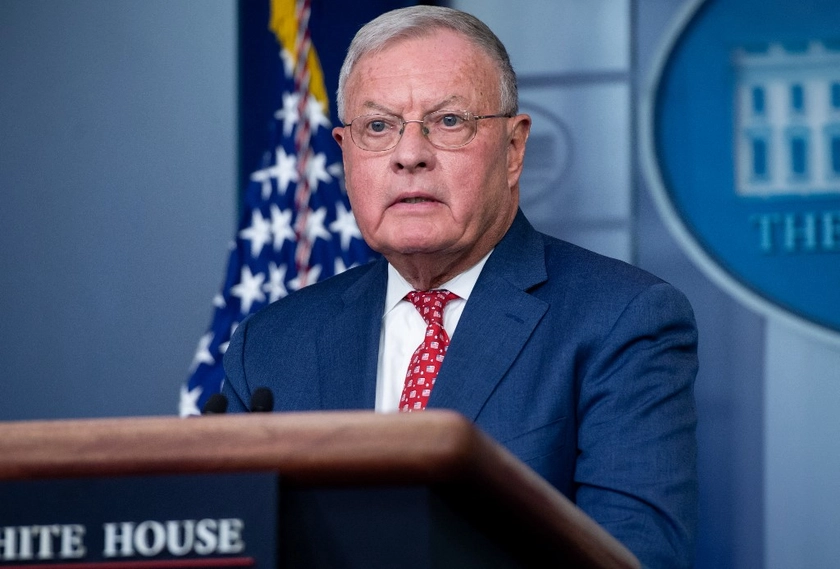The recent challenge of shifting a dialogue with the West into a more pragmatic mode has reached its climax for Ukraine after Donald Trump has sealed victory in US presidential elections.
Changes in the White House have been expected to become one of the crucial game-changers in the Russo-Ukrainian war. For Ukraine, it is also a moment of truth in securing Western support and consolidating chances in a battle for survival.
JOIN US ON TELEGRAM
Follow our coverage of the war on the @Kyivpost_official.
To that end, Ukrainian diplomacy should be applying all the skills of pragmatism it has so far acquired. Given Trump’s slogans, rhetoric, and previous experience of principled realism in US foreign policy, a pragmatic approach from the Ukrainian side will be more than welcome.
First of all, such an approach would require an understanding of US strategic interests and placing Ukrainian needs into that framework. Second of all, it should focus on how continued/intensified support for Ukraine could benefit both Washington and Kyiv.
Trump’s foreign policy strategy will be framed by America First ideology and an emphasis on restoring US leadership. However, given recent changes in global distribution of power and the importance of the Chinese challenge, Washington is about to become much more selective and pragmatic. Burden-sharing, risk control, and limiting options for free riders are likely to be general principles guiding Trump’s foreign policy decisions.
Air Trackers: French Air Force Launches Top-of-the-Line Fighters on Dicey Deep Black Sea Patrol
Trump’s intention to put an end to the Russo-Ukrainian war is sincere: it will be crucial for him to concentrate on China and weaken the connection between Beijing and Moscow. But stopping the war is an extremely difficult task: although the price of war has started to be pressuring both parties, they seem to be still far away from substantial negotiations. The dilemma for Trump is simple: cutting support for Ukraine may lead to its defeat, an outcome Washington hardly wants. In the end, a new administration may face an unpleasant choice between the two evils: continuation of Biden’s strategy with no clear result, or letting Ukraine lose.
Kyiv should signal an understanding of that difficulty and make attempts to help Washington overcome it.
Shaping a realistic peace vision could be helpful. The American president may be open to a negotiated settlement if he believes it could bring stability to the region without prolonged US involvement.
While Ukraine can’t compromise on core sovereignty and territorial issues, it should consider engaging Trump in discussions about potential diplomatic solutions that would end Russian aggression on favorable terms.
This approach would not require Ukraine to compromise its territorial integrity but could involve pragmatic discussions on security arrangements, sanctions strategies, or steps toward eventual peace talks. To secure American support, Ukraine must underscore the ways in which it benefits American interests.
This means emphasizing Ukraine’s role as a crucial front line against authoritarian expansion, which, if left unchecked, could destabilize European markets and thus harm American economic and security interests.
By framing its resistance against Russia as a protective buffer that allows the US to avoid more costly military engagements later, Ukraine can appeal to Trump’s interest in reducing direct American involvement in global conflicts.
Another priority for Trump’s administration is the economy. Apart from introducing new approaches inside the country, Trump’s principled realism in foreign policy is about looking at international alliances and partnerships through economic lenses. Ukraine should emphasize its potential as an emerging market for American investments, particularly in sectors like technology, agriculture, and energy.
Presenting these opportunities could encourage the Trump administration to view Ukraine not just as a military commitment but as a profitable economic partner.
Cooperation in agriculture, extraction of minerals, most importantly lithium and rare earth elements, and energy can be suggested by Kyiv as win-win collaborations that enhance American business and energy security while stabilizing Ukraine’s economy.
It goes well with a strategic goal of reducing Europe’s dependence on Russian energy resources and expanding US presence in the European gas market. Ukraine can also interest American businesses specializing in agriculture, biotechnologies, and infrastructure.
Additional opportunities for cooperation would open after the war, with American companies participating in massive reconstruction of Ukrainian houses, energy facilities, and roads. American companies specializing in infrastructure development, energy systems, and engineering could gain substantial contracts in Ukraine.
Overall, enhancing a ‘trade-not-aid’ approach favoring economic partnership over financial aid can fit better within the priorities and ideology of the new American administration.
Ukraine should also address the issue of transparency and efficiency. Trump’s reluctance toward foreign aid often stemmed from concerns about possible misuse of funds.
To address this, Ukraine should suggest strict oversight measures to reassure the US that American financial support will be effectively utilized.
Transparent reporting on military aid, anti-corruption reforms, and regular audits can address concerns within the Trump administration that American taxpayer dollars are being wasted.
This commitment to accountability would allow Ukraine to demonstrate its dedication to building a strong, corruption-free state while reassuring American policymakers of their investment.
Talking to Washington about continued support won’t be easy, because Ukraine is getting weaker. But chances can be maximized through clear and pragmatic arguments, and respect to the strategic dilemmas the US is facing.
This text is a part of the project “Pragmatic Dialogue with the West: Why It Is Worth Supporting Ukraine,” undertaken with the support of the International Renaissance Foundation. It presents the views of the author and does not necessarily reflect the position of the International Renaissance Foundation.
The views expressed in this opinion article are the author’s and not necessarily those of Kyiv Post.
You can also highlight the text and press Ctrl + Enter











